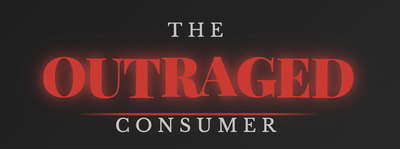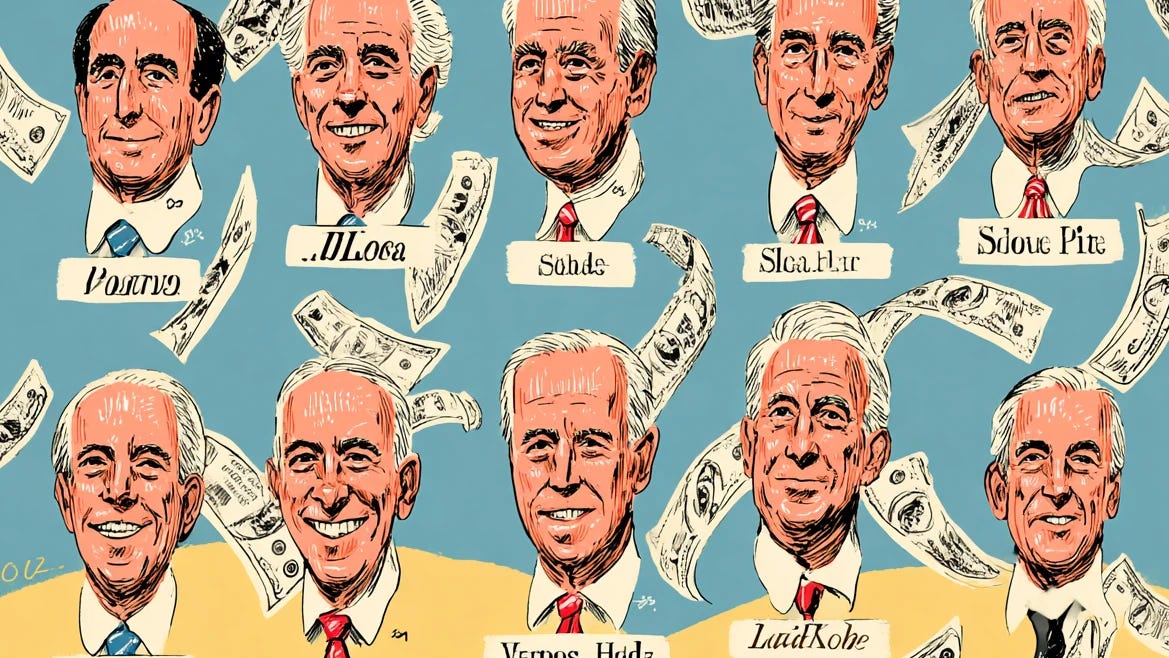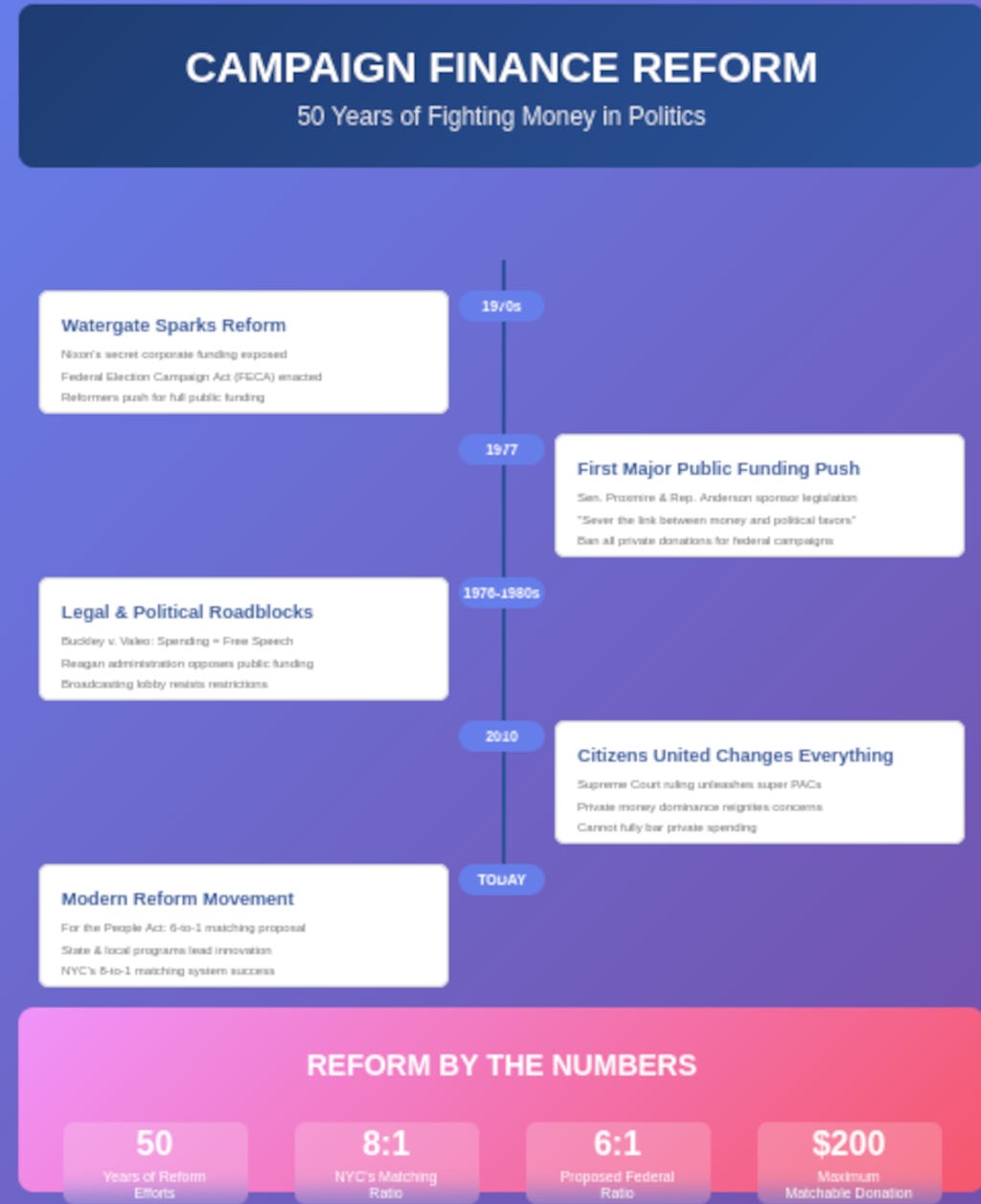The Fight for Public Campaign Financing: From Watergate's Ashes to Today's Reform Movement
Nearly 50 years after reformers first sought to eliminate private money from elections, the battle over campaign finance continues to shape American democracy
As millions of dollars pour into political campaigns from corporations, wealthy donors, and anonymous contributors, a growing chorus of voices is reviving a decades-old solution: publicly funded elections.
The idea isn't new. In the wake of the Watergate scandal, reformers in the 1970s and 1980s fought fiercely to eliminate private financing of campaigns altogether, believing only a fully public system could protect democracy from the corrosive influence of big money.
"The only way to restore public confidence in government is to sever the link between money and political favors," Senator William Proxmire of Wisconsin declared on the Senate floor in 1977, championing legislation that would have banned all private donations for federal campaigns.
Those efforts ultimately failed, stalled by political opposition, constitutional challenges, and concerns about taxpayer funding of politicians. But their legacy lives on in today's reform movement.
A New Generation of Reformers
Today, many Democratic lawmakers continue to champion public funding as a way to reduce the power of special interests. The For the People Act, introduced multiple times in recent years, includes a proposal for congressional races that would match small donations up to $200 at a 6-to-1 ratio with public funds.
Former President Joe Biden expressed support for public funding models as part of broader democratic reforms, though the legislation stalled in the Senate due to partisan opposition and the filibuster.
Most Republicans in Congress strongly oppose public financing, calling it a misuse of taxpayer dollars and arguing it might entrench incumbents or empower candidates whose views many taxpayers reject.
Local Success Stories
Despite gridlock in Washington, public funding systems are thriving at state and local levels. New York City runs one of the country's most successful programs, matching small contributions at an 8-to-1 rate and diversifying both candidates and donors.
Seattle has experimented with "democracy vouchers" that give residents certificates they can donate to candidates, while Arizona and Maine adopted full public financing systems in the late 1990s, though court rulings and political opposition have weakened these programs over time.
New York State is implementing a public financing program for legislative and statewide offices, scheduled to begin with the 2026 elections.
The Ongoing Challenge
The Supreme Court's 2010 Citizens United decision and the rise of super PACs have only intensified concerns about private money's dominance in American elections. The ruling makes it impossible to fully bar private spending, even with public financing in place.
"History shows we've been grappling with this problem for decades," said Meredith McGehee, a longtime campaign finance reform advocate. "The question remains: can we ever fully remove the influence of big money from our democracy?"
Polls consistently show majorities of Americans are concerned about money in politics and open to reforms, though support can drop when opponents emphasize that public funds might support controversial candidates.
Roughly seven-in-ten U.S. adults (72%) say that there should be limits on the amount of money individuals and organizations can spend on political campaigns. Just 11% say individuals and organizations should be able to spend as much money as they want, and 16% are not sure.
Looking Forward
While sweeping national reform seems unlikely in the immediate future, many reformers see state and local programs as laboratories for innovation. If these programs continue to show positive results in encouraging broader participation and reducing big-money influence, they may eventually help build momentum for larger-scale reforms.
The fervor of the 1970s and 1980s efforts endures as a reminder that the battle over money and politics is far from new — and far from over. As one reform advocate noted, the American government appears to be "for sale," with large campaign funds often outweighing everything but incumbency in shaping election outcomes.
The question facing lawmakers and voters alike is whether the political will exists to fundamentally change how America finances its democracy — or whether the influence of private money will continue to grow unchecked.




